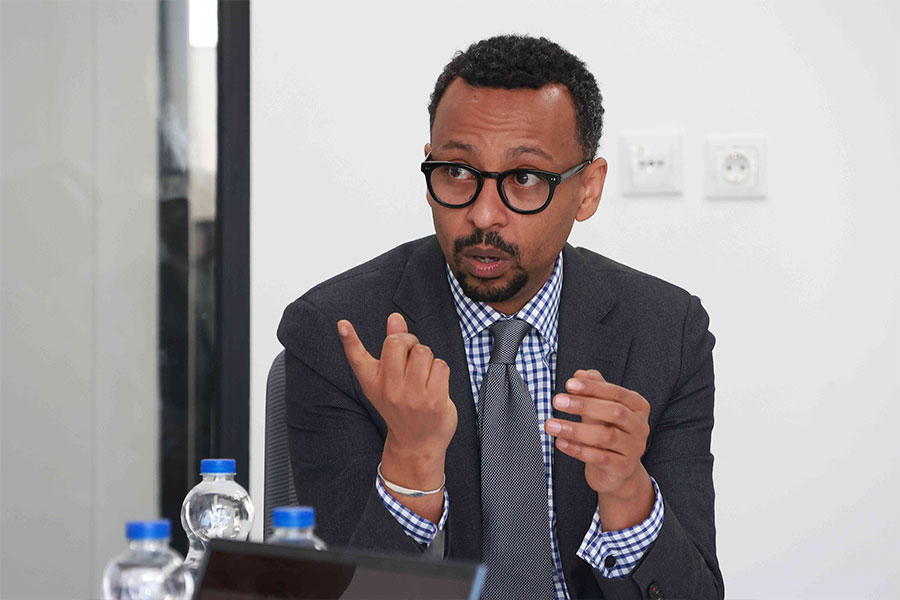
Fortune News | Apr 20,2019
Apr 30 , 2022
By Halima Abate (MD)
In a public administration at any level, in any setting, there is always a demand in operations for a move away from civility and towards productive governance. However, as there are factors beyond our control and influence, there is a logic to focusing on the achievable. Deliberate attention should be considered as existing complex problems continue to evolve, joined by emergent issues every day.
“Politics is the art of the possible, the attainable – the art of the next best,” Otto von Bismarck once noted.
It is true. There are always constraints on the fulfilment of good governance. Hence, the concept of the term, amelioration, is relevant as public administrators are never able to address all of the public's problems. Amelioration refers to improvement – a striving to do better, combined with the recognition that it will never be possible to achieve a perfect outcome that is acceptable to all. Hence, we need to be nuanced about expectations of creating enabling environments on the one hand and “getting things done” on the other where public administration is concerned. Progress does not come not from revolutionary turnarounds or the purging of established organisations. It instead emanates from adjustments in the perspective, manning procedures, and measures of the existing framework. The application of amelioration, thus, might be vital.
It does not take a genius to notice that the failure of governance is associated with limited resources, poor checks and balances and lacklustre political support. This may sound negative, but considering amelioration, the following takeaways should be kept in mind. The first is to keep focused on making incremental changes on an ongoing basis, and avoiding frustration if one does not achieve a perfect outcome. The other is emphasising the aspiration to excellence and doing best rather than overpromising the deliverables.
Practising the approaches in this way might support the development of a more realistic, more objective view of the challenges faced by public administrators. Besides, visualising the extent of challenges for the people will facilitate better engagement and create empathy in pursuing solutions to governance problems. Aside from exercising amelioration, embracing compassion and positivity as core governance principles are necessary because it is executable across all contexts of public service. Being positive by continuing to pursue solutions to governance problems and showing empathy in our professional interactions in ways that build citizens' trust can be constructive rather than throwing our hands in the air and complaining about politics.
Politicians will come and go, crises will eventually end and future problems are inevitable. What will not change is the necessity of public administration dedicated to the public; one that carries out its duties with core values of efficiency, effectiveness, economy and equity. There is a trend to use a political end to judge the means of public administration instead of using it as an efficiency criterion to judge the ends of a promised public service or agenda. Besides, as there is no tradition in training public administrators, perhaps because it has usually been thought more important for administrators to be responsive than skillful, the application of time and power to build a smoothly running organisation to achieve the settled social objectives has been disregarded.
Hence, the provision of a constructive continuity in government through reevaluating the concepts of public welfare, unity, democratisation and equality will provide positive results. Put together, the approaches of amelioration will provide a push for greater responsibility for achieving public value and enhancing efficiency by influencing the purpose, structure, and goals of public organisation.
PUBLISHED ON
Apr 30,2022 [ VOL
23 , NO
1148]


Fortune News | Apr 20,2019

Verbatim | Feb 01,2020

Fortune News | Sep 14,2024

Editorial | Apr 26,2025

Fortune News | Jul 03,2024

Fortune News | Apr 03,2023

Fortune News | Oct 28,2023

Editorial | May 16,2020

In-Picture | Apr 13,2025

Commentaries | Jan 18,2020

My Opinion | 131497 Views | Aug 14,2021

My Opinion | 127853 Views | Aug 21,2021

My Opinion | 125831 Views | Sep 10,2021

My Opinion | 123461 Views | Aug 07,2021

Dec 22 , 2024 . By TIZITA SHEWAFERAW
Charged with transforming colossal state-owned enterprises into modern and competitiv...

Aug 18 , 2024 . By AKSAH ITALO
Although predictable Yonas Zerihun's job in the ride-hailing service is not immune to...

Jul 28 , 2024 . By TIZITA SHEWAFERAW
Unhabitual, perhaps too many, Samuel Gebreyohannes, 38, used to occasionally enjoy a couple of beers at breakfast. However, he recently swit...

Jul 13 , 2024 . By AKSAH ITALO
Investors who rely on tractors, trucks, and field vehicles for commuting, transporting commodities, and f...

Jun 28 , 2025
Meseret Damtie, the assertive auditor general, has never been shy about naming names...

Jun 21 , 2025
A well-worn adage says, “Budget is not destiny, but it is direction.” Examining t...

Jun 14 , 2025
Yet again, the Horn of Africa is bracing for trouble. A region already frayed by wars...

Jun 7 , 2025
Few promises shine brighter in Addis Abeba than the pledge of a roof for every family...

Jun 29 , 2025
Addis Abeba's first rains have coincided with a sweeping rise in private school tuition, prompting the city's education...

Jun 29 , 2025 . By BEZAWIT HULUAGER
Central Bank Governor Mamo Mihretu claimed a bold reconfiguration of monetary policy...

Jun 29 , 2025 . By BEZAWIT HULUAGER
The federal government is betting on a sweeping overhaul of the driver licensing regi...

Jun 29 , 2025 . By NAHOM AYELE
Gadaa Bank has listed 1.2 million shares on the Ethiopian Securities Exchange (ESX),...